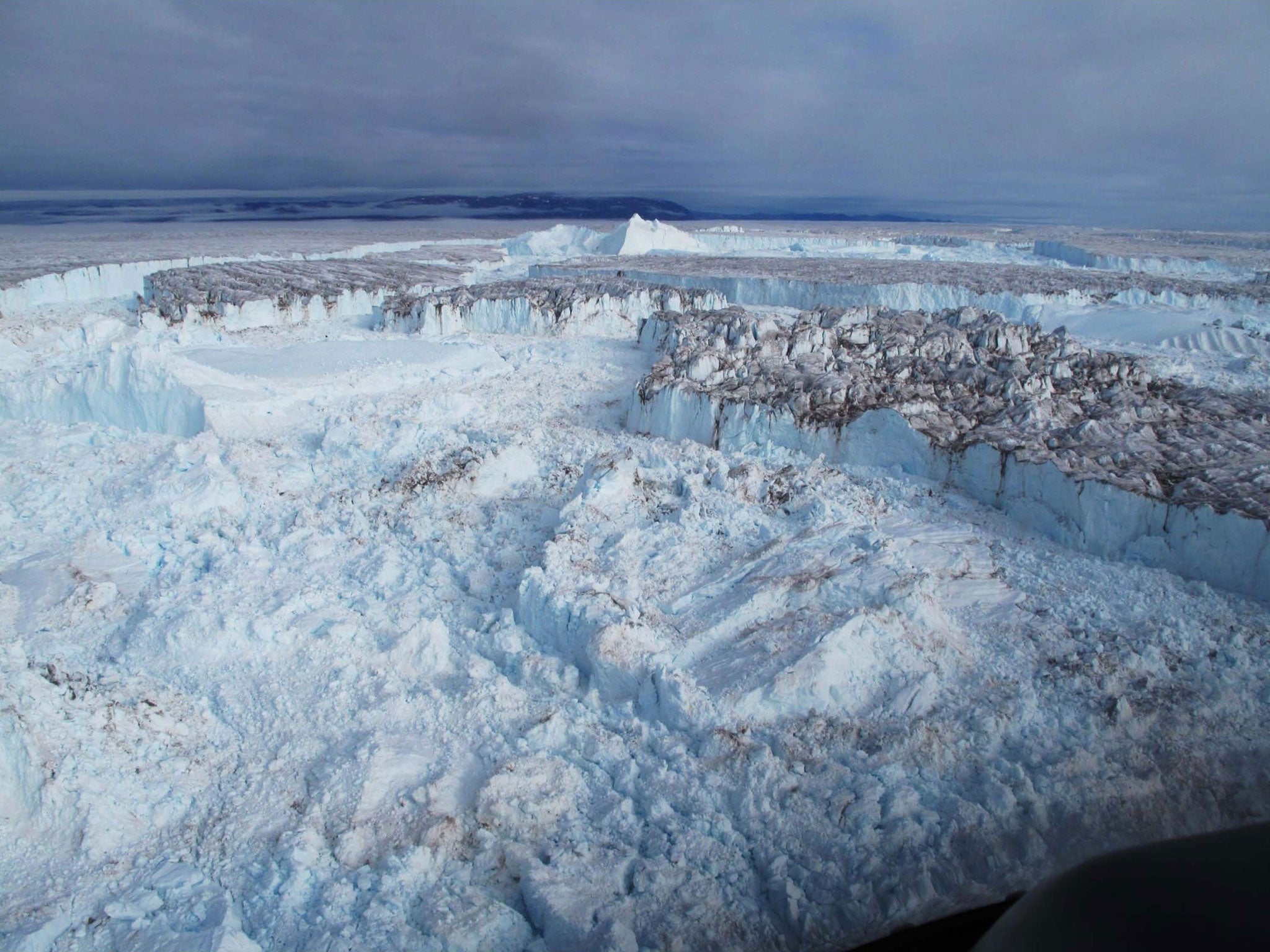Fears of faster rising global sea levels as 'stable' Greenland ice sheet starts to melt
New study shows north-eastern region has been losing billions of tons of ice since 2003

Your support helps us to tell the story
From reproductive rights to climate change to Big Tech, The Independent is on the ground when the story is developing. Whether it's investigating the financials of Elon Musk's pro-Trump PAC or producing our latest documentary, 'The A Word', which shines a light on the American women fighting for reproductive rights, we know how important it is to parse out the facts from the messaging.
At such a critical moment in US history, we need reporters on the ground. Your donation allows us to keep sending journalists to speak to both sides of the story.
The Independent is trusted by Americans across the entire political spectrum. And unlike many other quality news outlets, we choose not to lock Americans out of our reporting and analysis with paywalls. We believe quality journalism should be available to everyone, paid for by those who can afford it.
Your support makes all the difference.Global sea levels may rise faster than anticipated due to a rapid melting of the north-east corner of the Greenland ice sheet, according to scientists. This was widely considered to be cold and stable.
Satellite measurements have shown that this part of Greenland, which covers 16 per cent of the ice sheet, has now begun to melt after many years of stability – the reason why this area was left out of computer models predicting future global sea-level rise.
Regional warming in north-east Greenland in 2003 triggered the start of the melting seen over this area of the ice sheet, the study found. Since then, it has lost about 10 billion tonnes of ice a year to the sea. The findings have surprised the researchers, who said there is now concern that Greenland may become more important than anticipated in determining how fast sea levels rise this century.
The ice sheet is already one of the main contributors to rising sea levels over the past 20 years, accounting for an increase in the average levels of 0.5mm per year, out of a total increase of 3.2mm per year. “The Greenland ice sheet has contributed more than any other ice mass to sea-level rise over the past two decades and has the potential, if completely melted, to raise global sea level by more than seven metres,” said Professor Jeremy Bamber of Bristol University, a co-author of the study published in the journal Nature Climate Change.
“About half of the increased contribution of the ice sheet is due to the speed-up of glaciers in the south and north-west. Until recently, north-east Greenland has been relatively stable. This new study shows that is no longer the case.”
He added: “Most projections of the future behaviour of the ice sheet have no, or little, contribution from this part of Greenland, but these new results suggest that this region is sensitive to changes in climate and has the potential to contribute significantly now and in the future.”
The north-east segment has one of the longest ice streams – rivers of ice – draining a huge area of the ice sheet. Satellite recordings show that the Zachariae ice stream has retreated from the coast by about 20km in the past decade. This compares with a 35km retreat over 150 years for one of the fastest-moving glaciers, the Jakobshavn ice stream in the warmer region of south-west Greenland, the scientists said.
“North-east Greenland is very cold. It used to be considered the last stable part of the Greenland ice sheet. This study shows that ice loss in the north-east is now accelerating,” said Michael Bevis of Ohio State University, a co-author of the study.
“So, now it seems that all the margins of the Greenland ice sheet are unstable ... The fact that this ice loss is associated with a major ice stream that channels ice from deep in the interior of the ice sheet does add additional concern about what might happen.”
Join our commenting forum
Join thought-provoking conversations, follow other Independent readers and see their replies
Comments